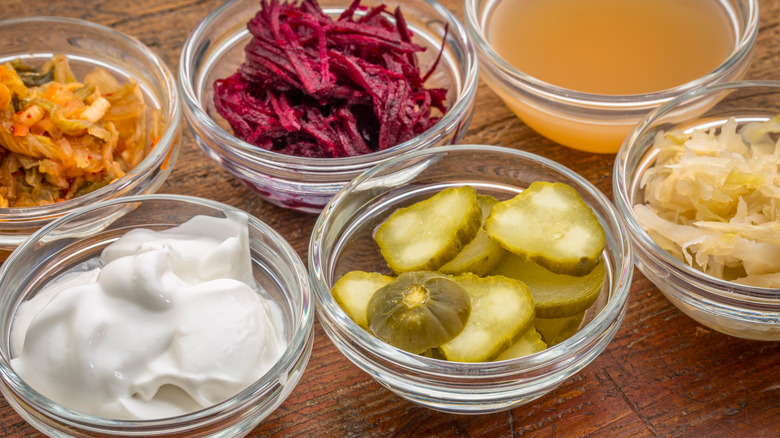What's The Difference Between Prebiotics And Postbiotics?
The proper knowledge about prebiotics and postbiotics is essential as they play a crucial role in digestion. Even though the two terms might sound similar, they differ significantly. And if you are conscious about your diet or your gut health, it would help to get to know these terms better.
According to WebMD, prebiotics are fibers derived from carbs that are indigestible for the human body. The undigested carbohydrates serve as food for the probiotic bacteria in the lower digestive tract. Apart from facilitating gut health, prebiotics also help absorb calcium faster, control glycemic index and help food ferment more quickly. Some of the everyday food items that contain prebiotics are bananas, apples, asparagus, and onions. Prebiotics are commonly found in fruits, vegetables, and whole grains.
So what about postbiotics? Well, they're related! While consuming the prebiotic fiber, the bacteria produce a bioactive compound known as the postbiotic compound. These compounds are mainly produced during fermentation processes, as per Healthline. Since postbiotics are bioactive compounds and not living organisms, they last longer than prebiotics, which helps them withstand harsh conditions. Postbiotics also help boost the immune system and improve gut health and digestion. The concept of postbiotics is relatively newer, so its supplements are not yet widely available.
The real difference between prebiotics and postbiotics
While both prebiotics and postbiotics operate in the gut and are part of the same chemical process, the real difference between them is the order in which they take place. The good bacteria in the digestive tract cannot feed in the absence of prebiotics, thus hindering the production of postbiotic compounds. So, in a way, they are interdependent.
Their interdependence naturally means that if you eat food with more prebiotics, your body gets to produce more postbiotics as the end-product. Postbiotics have several health benefits too. In a 12-week study on 80 healthy older adults, researchers found out that intaking postbiotic supplements lowers the risks of respiratory infection and improves the body's ability to produce antibodies to fight toxins and bacteria. Additionally, a 20-week study with 300 older adults revealed that a high dose of postbiotics helped the body fight the common cold (via Healthline).
Healthline asserts that postbiotics are also well-tolerated by the body. Besides, the body's alchemy takes care of most of this synthesis action, so the best thing would be to balance the intake of prebiotics to maximize postbiotics. Being more mindful of your diet can certainly be a founding step towards balancing prebiotics and postbiotics in the body.

